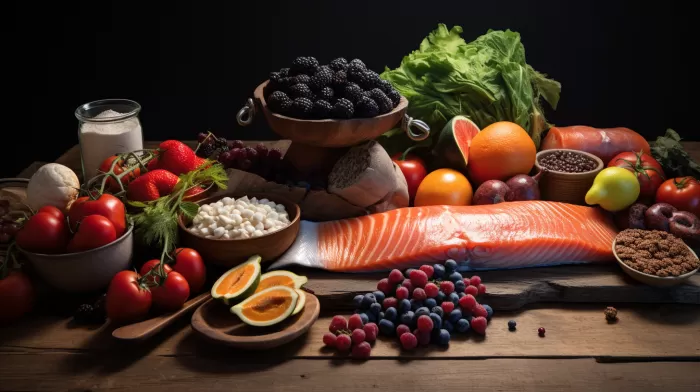It’s no secret that the Vikings were formidable warriors known for their travels and conquests. But did you know their diet may have played a significant role in their success and overall health? Modern research points toward the traditional Nordic diet as a powerhouse for cardiovascular health. In a study conducted at Lund University in Sweden, participants consuming a Nordic diet showed higher levels of HDL (good) cholesterol, lower levels of LDL (harmful) cholesterol, and decreased inflammation associated with the risk of diabetes.
The Traditional Nordic Diet: What’s On The Menu?
So, what exactly did the Vikings eat to keep their hearts healthy and strong? The traditional Nordic diet used in the study consisted of berries, root vegetables, legumes (beans), cabbage, nuts, game, poultry, fish, whole grains, rapeseed oil, and low-fat dairy products. There were no fast food items or processed foods on their menu.
Berries: A Natural Antioxidant Powerhouse
Berries such as blueberries, raspberries, and strawberries are packed with antioxidants that help to protect your body from the damage caused by free radicals, resulting in a reduced risk of chronic disease and inflammation. In fact, berries are some of the most antioxidant-rich foods you can incorporate into your diet.
Root Vegetables: Nutrient-dense and Fiber-rich
Root vegetables like carrots, beets, and parsnips not only provide essential vitamins and minerals, but also a good dose of dietary fiber. Fiber helps to maintain a healthy digestive system, lower cholesterol levels, and regulate blood sugar levels. Dietary fiber is essential for anyone looking to improve their cardiovascular health.
Legumes and Whole Grains: Your Heart’s Best Friends
Beans and whole grains such as oats, barley, and brown rice provide complex carbohydrates, protein, and fiber that help maintain stable blood sugar levels and reduce the risk of heart disease. In addition, the American Heart Association recommends consuming at least three servings of whole grains per day to support heart health.
Nuts and Seeds: Healthy Fats and Nutrients
Nuts and seeds are rich in heart-healthy fats, vitamins, and minerals. They are a great plant-based protein source and can help lower cholesterol due to their high levels of monounsaturated and polyunsaturated fats.
Game, Poultry, and Fish: Protein with a Purpose
Lean game meats like venison, elk, and bison, along with poultry and fish, offer high-quality protein, omega-3 fatty acids, and other essential nutrients that support heart health. Fish, in particular, is a great source of heart-healthy omega-3s, which have been shown to lower the risk of coronary artery disease and reduce inflammation.
Cabbage and Leafy Greens: Vitamin-packed and Versatile
Cabbage, kale, and other leafy greens are a critical part of the Nordic diet, providing a range of essential vitamins, minerals, and antioxidants. Incorporating a variety of leafy greens into your diet can lower your risk of heart disease and inflammation.
Rapeseed Oil: A Heart-healthy Alternative to Common Oils
Rapeseed oil, also known as canola oil, is an essential part of the Viking diet. It is a great source of healthy monounsaturated fats and omega-3 fatty acids, which are vital for heart health. Additionally, a study has shown that consuming rapeseed oil instead of saturated fat can help reduce LDL cholesterol.
Low-fat Dairy: Calcium Without the Fat
Low-fat dairy products like yogurt and skim milk were part of the Viking diet and provide essential nutrients, such as calcium and protein, without packing on too much saturated fat. Studies have linked the consumption of low-fat dairy products to a reduced risk of type 2 diabetes and heart disease.
Embrace the Viking Approach to Eating
Modern lifestyles might be far removed from those of our Nordic ancestors, but embracing the Viking approach to eating could be a simple and effective way to improve overall health and protect your heart. If you’re looking to make a change in your diet, start by incorporating more whole, unprocessed foods like fruits, vegetables, lean proteins, healthy fats, and whole grains. Your heart will thank you.



